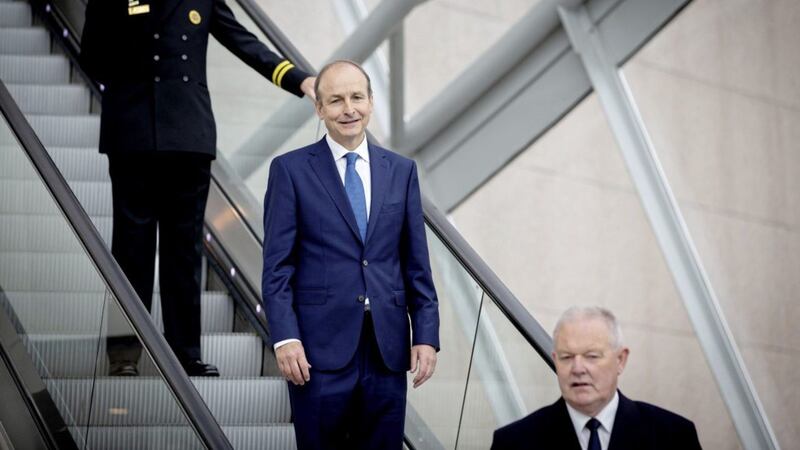Will the new coalition in Dublin survive as a sustainable model of government (as happens regularly in Germany) or will it turn out to be a failed political experiment (like Stormont more than once)?
Our best chance of an answer lies in understanding the past, analysing the present and having a stab at predicting the future.
In the past, the Dáil has seen about a dozen coalitions. Their average life span has been under four years, which suggests that this administration will survive for a while. But this government is different, because neither Fine Gael (FG) nor Fianna Fáil (FF) is the dominant partner. Both are now in government with the Greens.
The only previous comparable arrangement was in 1948, when Clann na Poblachta (CnP), headed by former IRA leader, Seán MacBride, entered coalition with FG and two different Labour parties. De Valera called it "a fraud against democracy". (Sound familiar?)
It collapsed after three years, because CnP's left-wing policies conflicted with the Church's over child healthcare. But, as foreign minister, MacBride effectively created the Republic of Ireland (previously Éire) and kept Ireland out of NATO and the Commonwealth. (Not a bad record for a fraud.)
Will the Greens now pursue a similar ideological purity and risk the coalition's stability? Probably not, unless they replace their leader.
The performance of the other two parties will depend on whether they view this arrangement as Ireland's political future, or just a necessary, temporary evil. The immediate task for both is to rebuild after a poor election.
FG has already made good progress, because Taoiseach Varadkar performed well during the pandemic. This rendered FF largely irrelevant, leaving Micheál Martin with a huge challenge as both incoming taoiseach and party leader.
However, it would be wrong to write him off. He is what might be called a natural politician. Varadkar is more a manufactured product, who had to research the ingredients for political skills. Martin was born with them.
Martin's future depends on events. If he controls Covid, makes some social and economic progress and gets a manageable Brexit, he will do well. But he will need a lot of luck.
He may get that from SF's attitude to its new opposition role. If SF treats every government decision as a major crisis, soon nothing will be a crisis.
Their "in-your-face" attitude has a limited shelf life and their northern record in government (where there is no opposition) leaves them exposed in highlighting inept administration. (Although the Dublin government's support for Stormont as an institution often obliges it to overlook northern scandal.)
Since there is always much to go wrong in the north (like a row over attending a funeral) SF will need some luck too. Their populist slogan, "Change", will initially resonate with the electorate. But if the coalition can re-boot the economy, SF may find opposition more difficult than expected.
"Change" can mean anything, because there are degrees of change. These range from state control of banks (which is real change) to just re-organising government departments (which is not better, just different). As Martin and Varadkar will undoubtedly ask, what has changed in the north after SF's 20 years in power?
The new government's fortunes will depend significantly on factors such as the global economy and Covid. But random events will also feature: possible political upheaval in Belfast, damaging SF, or a ministerial mess-up in Dublin, bringing down the government.
An early collapse of the new administration would probably mark the end of FF. Its natural successor would be SF. After all, both sprouted from the same populist nationalism. In that case, we may return to the old system of alternate governments, this time between FG and SF. That may be as much change as we ever see in Irish politics.
So will the new government last? Probably, although the people who can best predict the future are those with the power to influence it. The coalition parties now have that power. It is up to them to turn political experiment into sustainable government.









